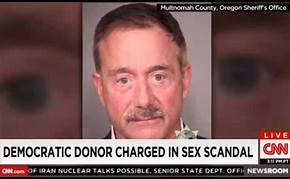
This is big. It was a 5-4 vote and probably represents the biggest change in labor relations ever before the court. Reading a portion of the decision, it seems simple and straightforward. I don’t see how the four dissenting justices can justify their stance, under the law. SCOTUS-rules-in-Janus-v-AFSMCE-that-government-unions-can not-make-non-members-pay-dues/
For those of you unfamiliar with the right to work, either by law or labor agreement here it is. We are talking public sector unions, police, fire, teacher, government workers and anybody else employed by a state, local, or federal government who is represented by a union. Employees could opt out of union participation by paying a fee, usually monthly. The money went to the union and was used for, among other things, political action.
Non-union members, subject to the fee, objected to how their money was being used. They had no control over it and had no say when the union used the money to endorse causes the union supported but were not supported by the non-union employees.
The union and assorted other scum will point out this decision defy all previous rulings dealing with the same subject. They would be wrong. The question in previous rulings was, “did the government have the authority to enter into such an agreement.” The new and improved question before the court is,”can the government make an employee donate money to a cause that he/she does not support?”
The Roberts Court basically said everybody gets the idea that freedom of speech allows the individual to speak out for or against a particular topic. The flip side is that people also have the right to withhold their support and approval. These are government employees whose right to express their opinions have been stripped away by government action, thus violating their right to free speech.
There is a lesson to be learned here. Once the court addresses an issue the core concept may have applications that are unanticipated at the time. The lawmaker and judges don’t get to say we’ll use this bit here, but not there. Don’t believe me? Look these cases up: Griswold v. Connecticut, 381 U.S. 479, Katz V United States 389 U.S.347, and Roe v. Wade, 410 U.S. 113 (1973). I don’t know what was going through the justices minds when these cases were decided, but I know where their heads were at.
What does this decision mean, in the long run? The Democratic party just lost a huge block of funds that they thought was theirs exclusively. Planned Parenthood is also in the same boat. This could break the back of public sector unions. The services public sector unions offer can be easily duplicated, with one exception. That would be the selection of a collective bargaining unit. For the first time since the inception of collective bargaining, the rank and file have the ability to select a negotiation team to meet their local needs rather than a bargaining team that pays lip service to local requirements while pursuing a national agenda.
The big story here isn’t the release of thousands of reluctant workers paying money towards a cause they don’t support, it’s the loss on 100’s of millions of campaign funds channeled directly to the Democrats.